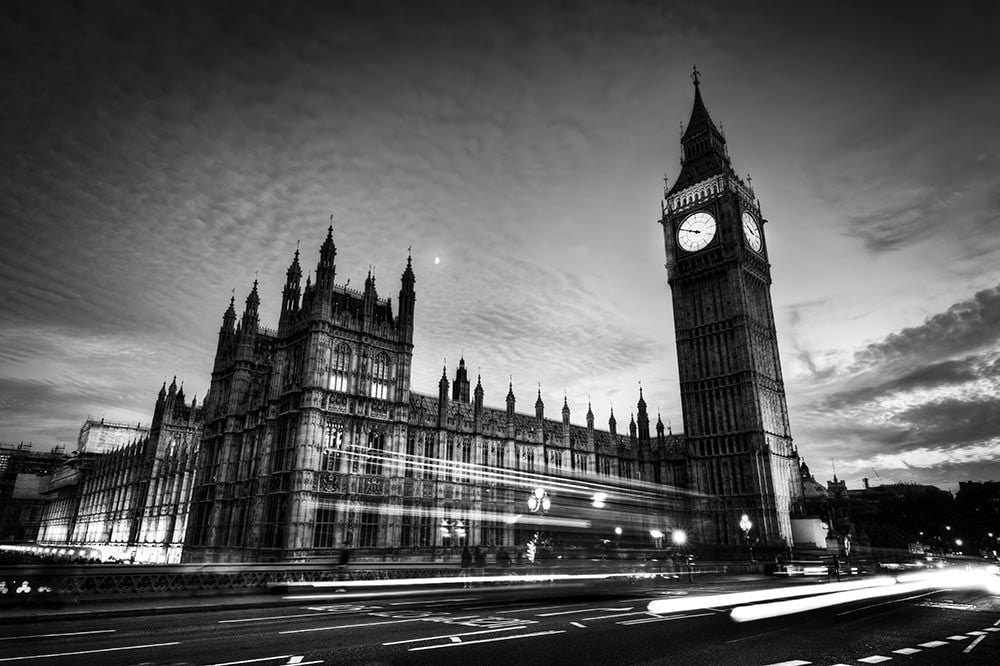British Pound Predicted to be "Softer this Week" by Analyst, seen Consolidating vs. Euro and Dollar in Monday Trade

© Photocreo Bednarek, Adobe Stock
Pound Sterling is being forecast to weaken over the course of the next few days as "investors question whether a 'no deal' Brexit remains likely on 29 March," says Richard Grace, a foreign exchange strategist with CBA in Sydney.
Grace's expectation for a softer Pound follows a strong January for Sterling that saw renewed upside vigour in the currency amidst a growing assumption that a damaging 'no deal' Brexit was becoming increasingly unlikely.
But the run has stalled somewhat leaving the currency in a contemplative mood at the start of February: the Pound-to-Euro exchange rate is quoted at 1.1427, making it broadly unchanged for four trading days. The Pound-to-Dollar exchange rate is meanwhile quoted at 1.3075, the pair has been caught in a 1.30-1.32 range for nine day snow.
Markets are certainly in a wait-and-see stance with regards the Pound. Monday sees the Alternative Arrangements Working Group meet to discuss alternative arrangements to the Irish border backstop question with the view of delivering a solution that the European Union and UK parliament can unite around to deliver a Brexit deal before the March 29 deadline. The group, lead by Brexit Secretary Stephen Barclay, comprises of Leave and Remain MPs with with talks expected to last three days.
The intention is to formulate a plan that will allow EU leaders to re‑consider the Irish backstop arrangement. "This has created renewed confusion which could undermine GBP this week," says Grace who is CBA's Chief Currency Strategist and Head of International Economics.
Marcus Fysh, a member of the group, told BBC Radio 4 on Monday the group had spoken to the EU and it was "very open" to the proposals, adding that they were not based on new technology.
Fysh said, "these are proposals that have not been discussed in the negotiations yet. The UK government has not properly looked at these proposals either."
Last week, the UK Parliament voted in favour of a non‑binding motion to avoid a 'no deal' Brexit, with the government winning a vote against another motion that would have given parliament the power to push the government into delaying Brexit. Furthermore, the government backed a further amendment that won the backing of the House of Commons instructing the UK to return to the EU and request changes be made to the Northern Irish backstop.
CBA expect confusion to persist until the Prime Minister updates parliament on February 13, ahead of the presentation of another amendable motion being tabled by the government, detailing their next steps, on February 14. We would expect further amendments to brought forward by MPs at this point which will be put to the vote. (This would make for a repeat of events seen on Tuesday, January 29).
CBA's bearish stance on the Pound is part-informed by weekend news out of the UK which has only "amplified confusion", with Conservative MP Steve Baker saying the influential ERG grouping of Conservative party MPs would only support the PM’s ‘Plan C’ if it contained the ‘Malthouse compromise’ (i.e. where the Irish backstop is completely removed in favour of new border technology.)
Sabine Weyand, the EU’s deputy chief negotiator, quickly dismissed such an option saying technology cannot solve the Irish border problem for "the next few years." Irish Prime Minister Leo Varadkar meanwhile told RTE radio it was "very frustrating" the UK government was "going back to the idea of technology".
However, Ireland's Foreign Minister Simon Coveney says he has not heard any new ideas that would go beyond anything that has already been discussed on the Irish backstop.
And, the European Commission's Secretary-General Martyn Selmayr, has said the EU was right to commence 'no deal' Brexit preparations following a meeting between the UK parliament's Brexit committee and the Commission. "The meeting confirmed that the EU did well to start its no deal preparations in December 2017," Selmayr wrote.
"GBP has been trading on a soft tone, as uncertainty remains intact whether the UK’s Prime Minister Theresa May will be able to get concessions from the EU in order to secure backing for a Brexit in the House of Commons," says Jakob Ekholdt Christensen, Chief Analyst, with Danske Bank.
Christensen expects the Pound-to-Euro exchange rate to trade within a wider range of 1.1628-1.1236.
If there has been any glimmer of hope for a breakthrough with the EU it would be comments from German Chancellor Angela Merkel who has struck a more compromising tone by saying the two sides must use the time available to strike a Brexit deal and that she believes the impasse can be broken by creativity. Speaking in Japan, Merkel did however appear to suggest any changes would not be made to the Withdrawal Agreement, which is now no longer open to negotiation.
Time to move your money? Get 3-5% more currency than your bank would offer by using the services of foreign exchange specialists at RationalFX. A specialist broker can deliver you an exchange rate closer to the real market rate, thereby saving you substantial quantities of currency. Find out more here. * Advertisement
